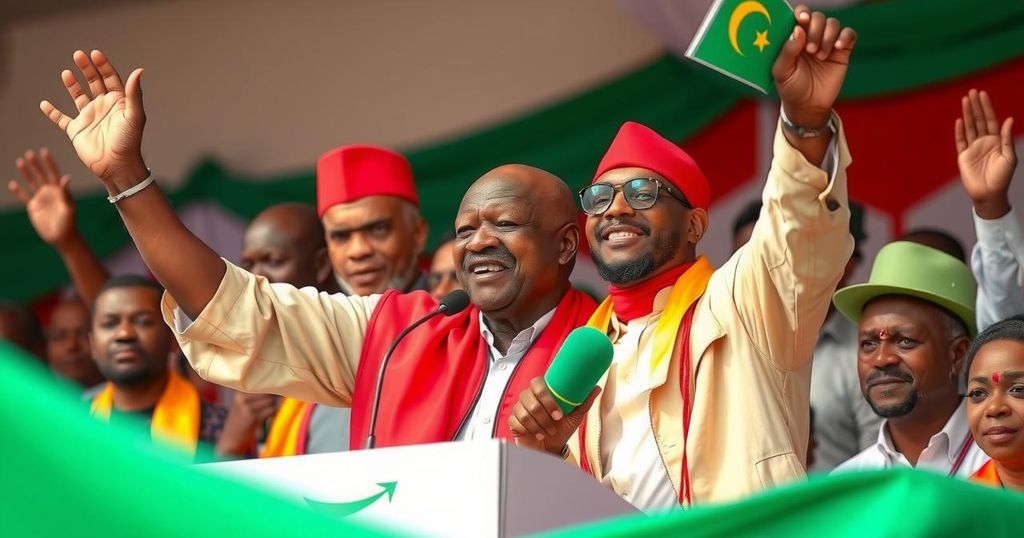Chad’s Ruling Party Secures Majority in Contentious Parliamentary Elections

Chad’s ruling Patriotic Salvation Movement claimed 124 out of 188 National Assembly seats in a controversial election marked by opposition boycott and a reported turnout of 51.56%. Critics denounce the election as a ‘charade,’ raising questions about its legitimacy following a disrupted presidential vote. This election represents a pivotal moment in Chad’s political transition amid ongoing security challenges.
Chad’s ruling Patriotic Salvation Movement, led by President Mahamat Idriss Deby, has claimed a decisive victory in the parliamentary elections held on December 29, 2023. According to provisional results announced by the electoral commission head, Ahmed Bartchiret, Deby’s party secured 124 out of 188 seats in the National Assembly. This election, which was marked by significant opposition boycott and skepticism regarding its legitimacy, is being viewed as part of a broader transition to democracy initiated following Deby’s rise to power as a military leader in 2021.
The turnout for this election was reported at 51.56%, a statistic that many opposition parties and critics interpret as indicative of widespread voter mistrust concerning the electoral process. The opposition, which included over ten political parties, denounced the election as a “charade,” expressing fears that it would mirror the perceived inadequacies of the disputed presidential vote held in the previous year. This parliamentary election, alongside municipal and regional elections, represents Chad’s first such exercise in over a decade.
President Deby, who assumed leadership after the death of his father, longtime president Idriss Deby Itno, emphasized the elections as a significant step towards decentralization and the distribution of power to provincial and municipal levels. His government has stated an intention to transform Chad’s political landscape, although the ongoing security challenges, especially from groups such as Boko Haram in the Lake Chad region, complicate these ambitions. Additionally, the recent severance of military ties with France has further highlighted the tumultuous political environment in the region, reflecting a broader shift in Africa’s geographical alliances in light of recent coups in the Sahel.
Chad has faced a tumultuous political landscape following the rise of Mahamat Idriss Deby after the death of his father, who ruled for 30 years. Deby’s tenure commenced as a military leader and has been marked by assertions of transitioning the country toward a democratic framework. However, significant opposition criticisms have arisen concerning the legitimacy of electoral processes, especially since various political factions chose to boycott the recent parliamentary elections, citing concerns over credibility and authenticity. The nation assumes critical importance in the broader Sahel region, battling not only internal governance issues but also combating security threats from extremist groups.
In summary, Chad’s recent parliamentary elections have drawn attention due to the ruling party’s substantial victory amidst an opposition boycott and allegations of electoral fraud. The participation rate and responses from opposition factions underscore underlying distrust in the political process. As President Deby promises a new era of decentralization, the implications of these elections on Chad’s governance and its regional political dynamics will continue to unfold.
Original Source: www.aljazeera.com








